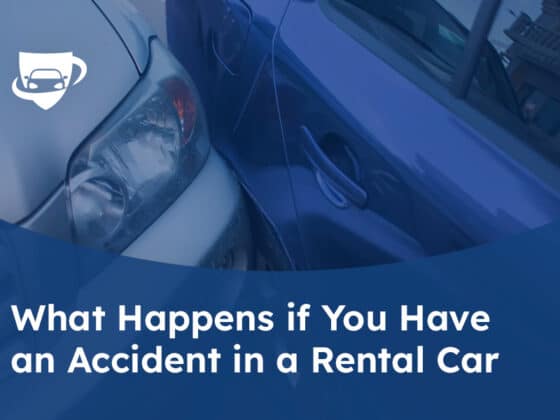So, you’ve had a minor car accident. Maybe you were rear-ended at a stoplight, or someone clipped your side mirror as they drove by. Regardless of how it happened, you now find yourself in a situation where you’re unsure what to do.
You should first try and stay calm. While every situation is different, it’s always best to consult with an attorney.
Here is a general overview of the steps you should take after a minor accident. Stay safe and organized—and good luck.
What Is a Minor Car Accident?
A minor car accident is an accident in which typically no one sustains injuries, and there is only damage to the vehicle. Minor car accidents usually happen when two vehicles collide at low speeds, typically below 20 mph.
While there may be only minor damage to the vehicle, such as a scratched bumper or a dent, it can still be costly to repair.
Minor Car Accident Examples
A minor car accident can be several things. For example, it can be a low-speed collision on the highway.
Moreover, it could be a parking lot accident, the most common being when two cars sideswipe each other while trying to parallel park. It could also be a single-vehicle accident with no involvement of other vehicles.
What To Do After a Minor Car Accident
After such an accident, it is vital to take the following steps. First, remain calm and assess the situation. If there are any injuries, call 911 right away. Next, move your vehicle to a safe location if possible.
Then, exchange information with the other driver, including insurance information. Finally, after minor auto crashes, it is important to take photos of the damage and file a police report if necessary.
Accident Reporting Requirements
In case of an accident, it is essential to report it properly to ensure that everyone involved is safe and accounted for. In addition, depending on the accident’s severity, you may have to meet various requirements.
For example, if there is a fatality or an injury requiring hospitalization, a formal police report must be filed. However, you can typically file a report online or with the car insurance company if the accident resulted only in property damage.
In any case, exchanging contact and insurance information with other parties is important. It may affect your car warranty.
Reporting Car Accidents to Insurance Companies
Many people decide to simply sweep a minor auto accident under the rug and hope their insurance company doesn’t find out. However, this generally isn’t a good idea.
For one thing, even a minor accident can result in hidden damage that may not be immediately apparent. If you don’t report the accident to your insurance company, it may not cover the cost of repairs.
However, remember that the minor car accident settlement amounts are lower. These settlements are generally between $10,000 and $15,000.
In addition, if you’re ever in another accident, your failure to report the first one could be used against you. Insurance companies typically offer discounts for drivers with a clean record, so keeping your record as clean as possible is important.
Do You Need a Police Report for an Accident?
While you may want to skip this step and don’t file a police report after such a crash, filing a report can provide several benefits.
First, reporting a car accident to the police creates an official record of the accident, which can be helpful if there are any issues with your insurance claim.
Additionally, a police report can help prove who was at fault, and it can be necessary if the other driver tries to sue you.
Finally, filing a police report can help deter crime; if would-be criminals see that people report accidents, they may be less likely to target that area.
Even for a car accident with no damage, a police report can provide valuable documentation if the other party doesn’t remember that they hit you and later tries to claim that you hit them.
Overall, taking the time to file a police report can provide peace of mind and protect your legal rights in a minor car accident.
Can you report an accident after the fact? Yes, you can file a report after the fact. However, in most cases, the time you have to do so depends on state law.
Failure to Report an Accident
While it may seem harmless, not filing a report can have serious consequences. For example, if another driver in the accident decides to file a claim, your insurance company may refuse to cover the damages because you didn’t file an accident report. In some cases, you may even have to hire a car accident lawyer to do damage control.
In addition, if you have a subsequent accident, your insurance company may argue that you failed to disclose the previous accident and refuse to pay for the damages.
As a result, it is always best to err on the side of caution and report a car accident, no matter how minor it may seem.
People Also Ask
What are examples of minor accidents?
Common examples of minor auto accidents include fender benders, a minor rear-end collision, and accidentally clipping another car while parking.
What is minor damage to a car?
Minor damage to a car can mean different things, depending on the context. In general, minor damage is any damage that is not significant enough to cause severe harm or impair the car’s functionality.
This could include scratches, dents, or chips in the paintwork. Minor damage is often cosmetic, and you can quickly repair it.
What is the difference between a minor and a major accident?
Minor car accidents involve less damage to vehicles and property, and no one is seriously injured. In contrast, major car accidents often damage vehicles and property and can cause serious injuries or even death.
What does a minor collision mean?
A minor fender bender is usually a traffic accident in which no one is injured, and the vehicle damage is minimal. Most minor collisions are low-speed accidents that occur while cars move slowly, such as in a parking lot or when reversing out of a driveway.
Do you have to report an accident to your insurance?
You are legally obligated to report an accident to your insurance company. You can even make an insurance claim with no police report. Failing to report the crash to your insurance can result in significant penalties, including fines and driver’s license suspension.
Reporting car accidents is the best way to ensure you receive the compensation you deserve for any damages.
Do you need a police report for a minor car accident?
Yes, you generally need a police report for a minor car crash. The police report will document the accident and may include statements from witnesses, drivers, and passengers. Moreover, a copy of the police report can be helpful when filing an insurance claim.
On the other hand, a minor car accident with no damage doesn’t necessarily require you to file a police report.
What happens if you don’t report an accident within 24 hours?
A few things could happen if you don’t report a minor car crash within 24 hours. The first thing is that your insurance company may not cover the damages.
Additionally, the other driver involved in the minor car accident may file a police report or insurance claim against you. That could cost you more money in the long run.



